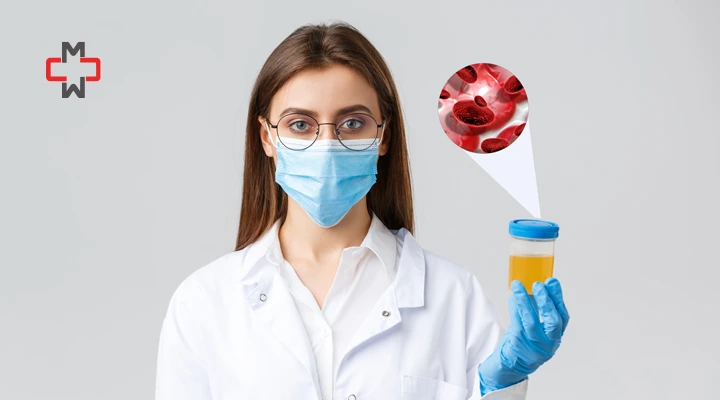Annual Physical Exam in
Manhattan, NYC
Looking to stay ahead of potential health issues and maintain long-term wellness? An annual physical exam is a vital part of preventive care and helps assess your overall health, even if you feel fine. At Manhattan Medical Arts, our experienced primary care providers offer personalized exams to help catch chronic conditions in their early stages, making it easier to manage your health effectively.
Looking for an annual physical exam near me or a trusted physical exam NYC provider? We’re conveniently located in Manhattan and accept walk-ins. Whether you’re due for your Annual Physical Exam in NYC or seeking a walk-in consultation, our clinic is here to serve your preventive care needs.
What Is an Annual
Physical Exam?
An annual physical exam is a routine doctor’s visit where your primary care provider evaluates your general health, reviews your medical history, and performs preventive screenings. These visits are designed to screen for diseases, assess risk factors, and encourage a healthy lifestyle update.
This yearly exam includes a review of your vital signs, such as blood pressure, heart rate, respiratory rate, and average temperature, and it often involves a simple blood test to screen for high blood sugar, cholesterol, and other indicators of chronic diseases.
An annual physical exam is a yearly check-up with your healthcare provider to evaluate your health status, update vaccinations, screen for early signs of disease, and track long-term risk factors.
For those looking for a physical exam center NYC location with easy access and compassionate care, our clinic is fully equipped.
What Happens During A
Physical Exam?
Your visit starts with a medical assistant or nurse practitioner checking you in and reviewing your health history and family medical history. The medical assistant measures your:


- Height and weight
- Blood pressure (to ensure a healthy blood pressure)
- Pulse (using two or three fingers on the wrist)
- Respiratory rate (to determine how many breaths you take per minute)
- Temperature
Next, your care provider will conduct a full physical exam, including:
- General appearance assessment
- Head and neck exam, including checking the lymph nodes
- Heart exam using a stethoscope
- Lung exam to listen for abnormal sounds
- Abdominal palpation
- Skin checks
- Reflex and neurological responses




In many cases, the exam also includes lab orders for blood tests such as:
- Complete blood count (CBC)
- Lipid panel
- A1C or glucose test
- Liver and kidney function panels
A depression screening may also be part of your visit to assess your mental health.
If you’re searching for a physical check up near me, our medical team is ready to help.
Why Annual Exams Matter
Annual exams are not just checklists – they form a complete picture of your health. They help with:
- Early disease detection (e.g., high cholesterol or high blood pressure before symptoms appear)
- Managing chronic diseases like diabetes or heart disease
- Supporting lifestyle changes before problems develop
- Establishing a baseline to spot early signs of illness
According to the CDC, regular checkups help lower emergency visits and support effective treatment of health problems before they escalate.


If you’re searching for an annual physical exam near me, or a medical health checkup in Manhattan, our clinic offers both walk-in and scheduled appointments with top-rated providers.
Who Performs Annual
Exams?
At Manhattan Medical Arts, your annual checkup is performed by one of our:
Family Medicine
Physicians
Nurse
Practitioners
Physician
Assistants
Each care provider is trained to perform annual exams, diagnose conditions, and prescribe medications if needed. All our providers hold a master’s degree or higher.
We also offer annual exams as part of our yearly wellness physical programs for adults of all ages.
For those wondering, can I get an annual physical at urgent care? Yes, many urgent care clinics offer physicals, but a dedicated primary care setting provides better continuity.
Male Annual Physical
Exam Checklist
- Height, weight, BMI
- Blood pressure and heart rate
- Testicular exam
- Hernia screening
- Prostate health discussion (age-based)
- Simple blood test for cholesterol, glucose
- STI screening (if indicated)
Female Annual Physical
Exam Checklist
- Height, weight, BMI
- Blood pressure and heart health
- Breast exam
- Pelvic exam, Pap smear, and HPV screening
- STI testing
- Mammogram scheduling (based on age & risk factors)
- Bone density scan (if age-appropriate)
How Often Should You Get an
Annual Physical Exam?
We recommend:
- One yearly physical for all adults
- More frequent visits for those with chronic conditions or strong family history
- Patients over 50 should get annual exams with health screening tailored to their risk factors
Early detection saves lives. A single annual physical can uncover conditions in the early stages, when treatment is most effective.
Our yearly wellness physical is tailored to your specific age, lifestyle, and medical history. Whether you need a routine medical health checkup or comprehensive screening, we’ve got you covered.


What To Expect After
The Exam
Your healthcare provider will review your lab results and physical findings. If necessary, a follow up appointment may be scheduled to:
- Monitor lab abnormalities
- Initiate treatment for any health conditions
- Refer to a specialist




You’ll receive:
- A full summary of your visit
- Preventive care recommendations
- Education about staying in good health
If you’re searching for a physical exam NYC option that combines thorough care with convenience, we’re here to help.
Insurance & Cost
Information
We accept most health insurance plans, including Medicare. If uninsured, out of pocket costs for a yearly checkup typically range from $120 to $250, depending on lab work.
Need a walk in clinic that does physicals near me? Our location in Manhattan makes access simple and fast.
When to Book Your
Physical Exam
If you haven’t had a yearly checkup in the last 12 months, now’s the time to prioritize your preventive care. Whether you
have concerns about your health, need vaccine updates, or just want to stay on top of your overall health, we’re here to help.
Annual wellness exams are an important part of staying proactive with your care. We make it easy to schedule your yearly wellness physical with flexible appointment options.
Searching for an annual physical exam NYC provider you can trust? Manhattan Medical Arts offers personalized, reliable care.
Frequently Asked Questions
How far in advance do I need to schedule an appointment?
It’s best to schedule your appointment at least a few weeks in advance to ensure you get a convenient time. Some centers may offer same-day availability, so it’s worth checking.
Does your center accept medical insurance?
Yes, our center accepts a variety of medical insurance plans. Calling and confirming if your specific plan is accepted is a good idea.
How much does a health screening cost if I don't have insurance?
If you don’t have insurance, a health screening typically costs between $100 and $200, depending on the tests included. We can provide a detailed breakdown of the costs when you call.
When are the results of the checkup available?
Results from your checkup are usually available within a week. We’ll contact you as soon as they’re ready, and you can also request a follow-up if needed.
Latest Blog Posts
Making primary care accessible









